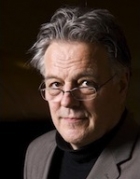Sense-making through science
Scientific worldviews and theories.
In one study we addressed the possibility of non-agentic compensation (Rutjens et al., 2010). We investigated whether order can be conferred from both religious and scientific views on the origin of life, and to what extent an external agent (in this case a deity) is a necessity in this process. We employed three perspectives on the origin of life. The first was intelligent design (describing a controlling agent providing order), the second was Darwin’s theory of evolution (no agent, theory allows for a certainl level of randomness and unpredictability), and the third was an orderly perspective on evolution, as put forward by Conway-Morris in 1995 (no agent, but theory emphasizes an orderly view on evolution). We manipulated personal control-threat and let participants choose between any set of two of these perspectives. When participants were asked to choose between intelligent design and Darwin’s classic theory of evolution, we found that control-threat led to a marginally significant preference shift in favour of intelligent design. We also found that for those whose control had been threatened, the orderly perspective on evolution became more attractive, but only when the alternative was Darwin’s theory of evolution (and not intelligent design). Finally, control-threat had no effect on participants that were asked to choose between the orderly perspective on evolution and intelligent design.
A second set of studies investigated the effects of threat on theory preference in science (Rutjens, van Harreveld, van der Pligt, Kreemers, & Noordewier, in 2013). We set out to investigate the hypothesis – as alluded to by Shermer (2008) in one of his Scientific American columns– that stage theories help to impose order on reality by explaining processes in terms of an orderly and predictable series of discontinuous steps. Kübler-Ross’s stage theory of grief (1969) is a well-known example (denial - anger - bargaining - depression - acceptance). Continuum theories generally describe processes or developments as more gradual and quantitative, lacking clear disruptions or steps. Three studies showed that a threat to personal control shifted participants’ preferences toward stage theories, when they were required to choose between stage theories and their continuum theory counterparts (the theories were about grief, dementia, and moral development). An additional study showed that stage theories about identity development and musical development are seen as more orderly and predictable (and, interestingly, as less credible) than continuum theories, and illusory pattern perception was found to underlie the effect of control-threat on theory preference. This indicates a motivated search for order. In addition, one study found similar effects on theory preference as a result of a randomness prime (i.e., a threat to order). Two additional insights that these studies provided were a) that the motivation to perceive order seems to override valence (threat pushed people toward negative predictability over hopeful uncertainty) and b) the appeal particularly seems to lie in the information about the order of the stages that a certain process or phenomenon consists of (Rutjens et al., 2013).
Belief in scientific progress.
The primary need to perceive order in the world, and not the need to bolster belief in the potency of external sources of control per se, led us to explore belief in scientific progress as a worldview that might harbour a compensatory order function. Belief in progress has received considerable attention in philosophy (Gray, 2004, 2007; Russell, 1929) and historiography (Brunner, 1972; Bury, 1955), some of this work provides clues about the potential compensatory function of bolstering beliefs in human and technological advances. Indeed, endorsing the belief that the course of scientific endeavour and societal history follows an upward trend could well help to see the world as orderly and under control, and a view on the course of human history as predictable. For example, consider how scientific progress might lead to medical advances that enable humanity to control hitherto uncontrollable diseases, and to technological advances that allow us to reduce unpredictability and lack of information. In this line of research we tested whether a control-threat would enhance belief in progress (Rutjens, van Harreveld, & van der Pligt, 2010) and whether affirming belief in progress helps to increase perceptions of order (Meijers & Rutjens, under review). Indeed, we found that control-threat increased the motivation to defend the idea of human progress and led to more faith in both scientific and societal advances occurring in the future. We also found that a threat to personal control led to an enhanced willingness to invest in stem cell research and nanotechnology.



